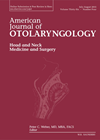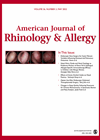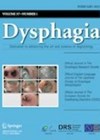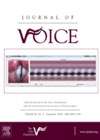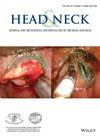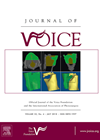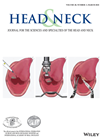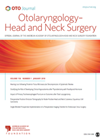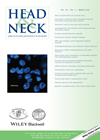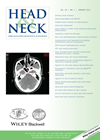
Journal Reviews
Does transoral robotic surgery improve outcomes among patients with head and neck cancer of unknown primary?
A tonsillectomy and tongue base mucosectomy is becoming increasingly accepted as the optimal surgical intervention to aid in identifying the primary source of a p16+ / HPV-related squamous cell carcinoma (SCC) of unknown origin, given that this disease almost exclusively...
Should we be utilising the pre-lacrimal approach for maxillary sinus inverted papilloma?
For some time now, gold standard management of the maxillary sinus inverted papilloma has been endoscopic medial maxillectomy (EMM). Recently the endoscopic prelacrimal recess approach (EPLRA) has been reported to provide good access whilst preserving the nasolacrimal duct and inferior...
Dysphagia in people with HPV-related oropharyngeal cancer
Human papilloma virus (HPV) associated oropharyngeal cancers are becoming much more prevalent and, in some geographic areas, have overtaken tobacco as the leading cause of oropharyngeal cancer. HPV-associated cancers are also reported to have better prognosis in general, and research...
Multiple surgeries for RRP – does a greater number of operations result in a worse voice outcome?
Recurrent respiratory papillomatosis (RRP) of the larynx remains a challenging condition to treat, with a number of affected patients requiring multiple operations to remove recurrent disease over the course of their lifetime. At the most severe end of the spectrum,...
Active smoking predicts poor outcome in HPV positive oropharyngeal squamous cell carcinoma
Tobacco smoking is a well-known risk factor in human papilloma virus (HPV)-negative head and neck squamous cell cancer. Its effects include increased risk of treatment failure, distant metastases and reduced overall survival. HPV has been increasingly implicated as a causative...
Inverted papilloma
This Croatian study aimed to look at risk factors associated with malignant transformation and recurrence in 91 cases in a single institution over a 20-year period. There were 66 men and 25 women included in the study. The authors reported...
Gardasil vaccination for laryngeal RRP – an update
This paper reports the results of a follow-up study investigating the possible role of adjuvant Gardasil vaccination in patients with recurrent laryngeal papillomatosis. The preceding study – also published in the Journal of Voice (2017) – reported the changes in...
Impact of the updated cancer staging system on HPV-positive disease
The AJCC cancer staging manual was updated in 2017 (8th edition). It is used in the MDT setting for planning treatment and assessing prognosis for individual patients, and is also widely used internationally in clinical trials. Unlike previous iterations of...
An algorithm to distinguish between distant metastases and metachronous lung primary in patients with HPV-related oropharyngeal cancer
Distinguishing between distant metastases of HPV-related oropharyngeal squamous cell carcinoma (OPSCC) and metachronous primary lung squamous cell carcinoma (SCC) is important as it has implications for treatment, prognosis counselling, and registry data. Although p16 immunohistochemistry (p16 IHC) is widely accepted...
Gardasil vaccination as an adjuvant treatment for established recurrent laryngeal papillomatosis in male adults - does it stimulate an immune response?
Recurrent respiratory papillomatosis (RRP) is well known to be caused by infection with the human papilloma virus (types 6 and 11). Recurrence after surgical removal is common and potentially frequent and severe. Previous research has established that many patients with...
Difficult consultations with HPV-positive oropharnyeal cancer patients
The aetiological role of human papillomavirus (HPV) in oropharyngeal squamous cell carcinoma (OPSCC) is well established, and its incidence has massively increased over the last decade, whilst the incidence of HPV-negative OPSCC is declining. Although we know that HPV-positive OPSCC...
Risk factors for TORS treatment failure in HPV-related oropharyngeal cancers
HPV-related squamous cell cancers are an increasingly common cause of malignancy in the oropharynx. There is evidence that these cancers are associated with a significantly improved overall survival compared to conventional HPV-negative tumours. The optimal treatment for such cancers is...

